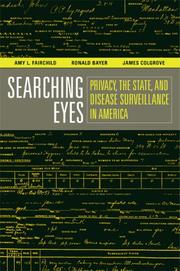| Listing 1 - 4 of 4 |
Sort by
|

ISBN: 1781701148 1847791859 9781847791856 9781781701140 0719068320 9780719068324 9780719068324 0719068320 0719068339 9780719068331 1847796036 9781847796035 Year: 2007 Publisher: Manchester Manchester University Press
Abstract | Keywords | Export | Availability | Bookmark
 Loading...
Loading...Choose an application
- Reference Manager
- EndNote
- RefWorks (Direct export to RefWorks)
The international importance of David Malouf's writing has been acknowledged by several prestigious international awards, including the inaugural Dublin IMPAC literary award, in 1996, and the Neustadt International Prize for Literature, in 2000. Don Randall's comprehensive study situates Malouf within the field of contemporary international and postcolonial writing, but without losing sight of the author's affiliation with Australian contexts. The book presents an original reading of Malouf, finding the unity of his work in the continuity of his ethical concerns: for Malouf, human lives find their value in transformations, specifically in instances of self-overcoming that encounters with difference or otherness provoke. However, the book is fully aware of, and informed by, the quite ample body of criticism on Malouf, and thus provides readers with a broad-based understanding of how Malouf's works have been received and assessed. It is an effective companion volume for studies in postcolonial or Australian literature, for any study project in which Malouf figures prominently. Malouf's poetry receives chapter-length attention; however, the greater part of Randall's criticism examines, in chronological order, the prose fictions that are the basis of Malouf's current international reputation. Randall measures each work's specific concerns and achievements, but also situates each in the process of Malouf's writerly development, which is shown to be quite remarkably continuous and cumulative. The criticism reveals Malouf's distinctive contribution to key topics that have given shape to contemporary literary studies. Malouf explores the making of subjectivity, focusing on the role of the other, of place, of language, of memory and history. Randall's study discovers Malouf as a particularly engaging case of postcolonial authorship.
English --- Languages & Literatures --- English Literature --- Malouf, David, --- Criticism and interpretation. --- Australian literature. --- David Malouf. --- encounters with difference. --- ethical concerns. --- international writing. --- otherness. --- postcolonial writing. --- self-overcoming. --- transformations. --- unity.
Book
ISBN: 3039212621 3039212613 Year: 2019 Publisher: MDPI - Multidisciplinary Digital Publishing Institute
Abstract | Keywords | Export | Availability | Bookmark
 Loading...
Loading...Choose an application
- Reference Manager
- EndNote
- RefWorks (Direct export to RefWorks)
This book presents cross-discipline studies covering aspects ranging from animal science to social/consumer sciences and psychology, with the aim to collect and disseminate information promoting the continuous enhancement of animal welfare by improving stakeholders’ perception of animal welfare. Although animal welfare is about how the animals perceive the surrounding environment, the actual welfare of the animals is dependent on how the stakeholders perceive and weigh animal welfare. The stakeholders can, either directly (i.e., through stock-people interaction with the animals) or indirectly (e.g., when retailers and consumers are willing to pay more for high welfare animal-based products), affect the way animals are kept and handled.
education --- animal welfare --- young adult --- welfare --- stunning --- human health --- perception --- slaughter --- pig --- pigs --- children --- livestock --- laying hen --- racehorse welfare --- qualitative research --- free elicitation narrative interviews --- knowledge --- fear --- milk production --- ethical concerns --- food safety concerns --- agreement --- stakeholder perception --- castration --- sheep farmers --- farmer perception --- animal ethics --- goat --- benefit --- horse --- dairy buffalo --- animal attitudes --- turkey --- farm animal welfare (FAW) --- animal --- survey --- Animal welfare --- husbandry practices --- willingness to pay --- donkey --- avoidance distance --- training --- stockperson behaviour --- stockpeople attitudes --- farm animal welfare --- farm animals --- veterinary students --- broiler --- text mining --- religious slaughter --- profit --- consumer --- sheep --- egg farm --- Halal meat --- pain --- employee relations --- standards of care --- animal behavior --- consumer demand --- albumen corticosterone --- aggression --- technology --- transport --- test-retest reliability --- desensitization --- producer perspective --- economics --- pain perception --- Asia --- horse–human relationship --- lambs --- veterinary student --- human-animal relationship --- information --- citizen perception --- immunocastration --- perceived consumer effectiveness --- staff shortages
Book
ISBN: 9780520277953 9780520277946 0520277945 0520277953 1322105464 0520958497 9780520958494 9781322105468 Year: 2014 Publisher: Oakland, California
Abstract | Keywords | Export | Availability | Bookmark
 Loading...
Loading...Choose an application
- Reference Manager
- EndNote
- RefWorks (Direct export to RefWorks)
The study of migrant populations poses unique challenges owing to the mobility of these groups, which may be further complicated by cultural, educational, and linguistic diversity as well as the legal status of their members. These barriers limit the usefulness of both traditional survey sampling methods and routine public health surveillance systems. Since nearly 1 in 7 people in the world is a migrant, appropriate methodological approaches must be designed and implemented to capture health data from populations. This effort is particularly important because migrant populations, in comparison to other populations, typically suffer disparities related to limited access to health care, greater exposure to infectious diseases, more occupational injuries, and fewer positive outcomes for mental health and other health conditions. This path-breaking handbook is the first to engage with the many unique issues that arise in the study of migrant communities. It offers a comprehensive description of quantitative and qualitative methodologies useful in work with migrant populations. By providing information and practical tools, the editors fill existing gaps in research methods and enhance opportunities to address the health and social disparities migrant populations face in the United States and around the world.
Public health --- Immigrants --- Emigration and immigration --- Research --- Methodology --- Health and hygiene --- Health aspects --- Methodology. --- Emigration and immigration -- Health aspects. --- Health. --- Immigrants -- Health and hygiene. --- Immigrants -- Medical care. --- Immigrants -- Social conditions. --- Migration. --- Health Status --- Methods --- Delivery of Health Care --- Persons --- Demography --- Science --- Health Care Quality, Access, and Evaluation --- Investigative Techniques --- Patient Care Management --- Named Groups --- Population Characteristics --- Epidemiologic Measurements --- Health Care --- Analytical, Diagnostic and Therapeutic Techniques and Equipment --- Social Sciences --- Natural Science Disciplines --- Health Services Administration --- Disciplines and Occupations --- Public Health --- Anthropology, Education, Sociology and Social Phenomena --- Environment and Public Health --- Health Status Disparities --- Healthcare Disparities --- Research Design --- Emigrants and Immigrants --- Health & Biological Sciences --- Public Health - General --- Emigrants --- Foreign-born population --- Foreign population --- Foreigners --- Migrants --- Aliens --- Public health - Research - Methodology --- Immigrants - Health and hygiene - Research - Methodology --- Emigration and immigration - Health aspects --- anthropology. --- cultural diversity. --- educational diversity. --- epidemiology. --- ethical concerns. --- ethnographic research. --- global health. --- health conditions. --- health data. --- health. --- human condition. --- immigrant health. --- immigration and immigrants. --- infectious diseases. --- legal status. --- linguistic diversity. --- medical. --- mental health. --- migrant communities. --- migrant populations. --- migrant. --- migrants in europe. --- migrants in the united states. --- migration. --- mobility. --- occupational injuries. --- participant observation. --- public health. --- surveillance systems.

ISBN: 1282772287 9786612772283 0520941217 1435611489 9780520941212 9781435611481 9780520252028 0520252020 9780520253254 0520253256 1433708922 9781433708923 Year: 2007 Publisher: Berkeley New York University of California Press Milbank Memorial Fund
Abstract | Keywords | Export | Availability | Bookmark
 Loading...
Loading...Choose an application
- Reference Manager
- EndNote
- RefWorks (Direct export to RefWorks)
This is the first history of public health surveillance in the United States to span more than a century of conflict and controversy. The practice of reporting the names of those with disease to health authorities inevitably poses questions about the interplay between the imperative to control threats to the public's health and legal and ethical concerns about privacy. Authors Amy L. Fairchild, Ronald Bayer, and James Colgrove situate the tension inherent in public health surveillance in a broad social and political context and show how the changing meaning and significance of privacy have marked the politics and practice of surveillance since the end of the nineteenth century.
Public Health Practice --- Privacy --- Health Policy --- Confidentiality --- Population Surveillance --- Privacy, Right of. --- Public health surveillance. --- Invasion of privacy --- Privacy, Right of --- Right of privacy --- Civil rights --- Libel and slander --- Personality (Law) --- Press law --- Computer crimes --- Confidential communications --- Data protection --- Right to be forgotten --- Secrecy --- Population surveillance (Public health) --- Surveillance, Public health --- Epidemiology --- Surveillance, Population --- Confidential Information --- Patient Data Privacy --- Privacy of Patient Data --- Privileged Communication --- Communication, Privileged --- Communications, Privileged --- Data Privacy, Patient --- Information, Confidential --- Privacy, Patient Data --- Privileged Communications --- Duty to Warn --- Disclosure --- Anonymous Testing --- Parental Notification --- Healthcare Policy --- National Health Policy --- Health Policies --- Health Policy, National --- Healthcare Policies --- National Health Policies --- Policy, Health --- Policy, Healthcare --- Policy, National Health --- Policy Making --- PL 93-579 --- PL93-579 --- Privacy Act --- Public Law 93-579 --- Act, Privacy --- Law 93-579, Public --- PL 93 579 --- PL93 579 --- Public Law 93 579 --- Health Practice, Public --- Health Practices, Public --- Practice, Public Health --- Practices, Public Health --- Public Health Practices --- history --- Law and legislation --- Health Care Policies --- Care Policies, Health --- Health Care Policy --- Policies, Health --- Policies, Health Care --- Policies, Healthcare --- Policy, Health Care --- 20th century american healthcare. --- 20th century american history. --- activism. --- aids. --- birth defects. --- cancer. --- conflict. --- controversy. --- democratic policy. --- detection. --- diagnosis. --- disease. --- ethical concerns. --- government and governing. --- health authorities. --- history. --- illness. --- immunization registry. --- legal concerns. --- medical. --- occupational disease. --- privacy. --- public health surveillance. --- public health. --- reporting. --- resistance. --- secrecy. --- surveillance. --- syphilis. --- united states of america.
| Listing 1 - 4 of 4 |
Sort by
|

 Search
Search Feedback
Feedback About UniCat
About UniCat  Help
Help News
News